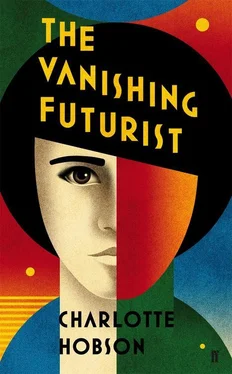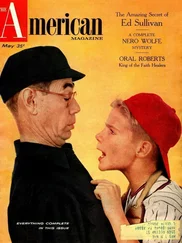Sonya stood up, turned away, her voice cold. ‘Don’t you need to get on with your chores? Fyodor will reduce your rations if you’re not careful. I can manage him perfectly well…’
I glanced over to the mattress in the corner of his workshop. Nikita was sleeping now; I had arrived back to find Sonya struggling with him in the hall. He was refusing to go upstairs, shouting that he must work, that he didn’t have any time to lose, and so on. He agreed to lie down only when we made up a bed next to his workbench.
In the centre of the workshop, on stands, were two long metal pods the shape of canoes, lined with cotton wadding. On the outside they were encrusted with electrical circuits and batteries made out of the iron bars Volodya had successfully purloined from the railway station, copper wire from Marina’s hospital, vinegar I had bartered for at the market.
‘Why is he building two Capsules?’ I asked.
‘He wants me to test it with him. Just in case, you know…’
I swivelled towards her. ‘In case of what?’
‘I’d better not say – it’s just a remote possibility…’ But there was something about her smile, half suppressed, that filled me with miserable rage. I was shaking as I left. Anna Vladimirovna was calling me, but I stood for a while in the hall until I had gained control of myself. Then I heard Vera’s voice calling too.
‘Gerty! Please, Gerty, we need you! It’s Mamzelle…’
* * *
Mademoiselle Bourget looked as if she were sleeping. Her small, wrinkled face was pale and calm, her eyebrows very slightly raised. My first thought was how very thin she had become. The bones in her skull were clearly visible through her wisps of grey hair. Her jawline was horribly sharp. That morning she had complained of the cold and when I set off to see Pelyagin I had wrapped her in my blankets as well as her own. In her faint voice she had thanked me.
‘ Fille sage, c’est-ce que tu es… très sage… ’
Now it seemed that those were her last words. No one recalled her having said anything while I was out. She had always been shy; like the gentle little creature she was, she had left us at the quietest moment in the day, when all of us were out at work and even her old companion was taking a nap.
‘I woke up and tried to speak to her, and she didn’t answer!’ Anna Vladimirovna kept repeating. ‘It’s most distressing! She’s always been with me, ever since I came to live in this house!’
I persuaded the old lady to sit outside in the hall while Vera and I laid Mamzelle out. She was so light that we were able to lift her easily. There were no flowers, but we lit what candles we had and arranged them around her. When the others returned we sat quietly with her. There seemed little to say about her. I realised that I knew nothing about her childhood or her family; I’d never heard her mention anything about her life before she came to the Kobelevs. A lonely, unassuming soul, a governess through and through. I began to cry and suddenly I was sobbing noisily and burying my face in my apron. Yet even those tears, I reflected bitterly, were not for Mamzelle.
By December we had developed the habit of going straight to bed, fully dressed, the moment we arrived home – that way we preserved any heat we might have managed to create by walking. All of us were malnourished. Sonya had twice fainted in the street. I had been feeling dizzy and nauseous for some weeks; occasionally I had no desire even for our meagre rations. Now, of course, I’m an old lady and I need very little food. But I still feel the urge, now and again, to control hunger by embracing it; the strange pleasure of not eating.
The Centre had relieved Slavkin of his post due to his nervous collapse and articles began to appear in the papers accusing him of various Bolshevik taboos – ‘spiritual tendencies’, ‘self-indulgent bourgeois experimentation’.
‘This is to be expected,’ Nikita said shortly. ‘They don’t understand particle physics. Before a great advance in science you will always find nay-sayers.’ The Socialisation Capsules, he thought, would soon be ready for trials.
Instead of our evening meetings we chatted and read aloud – poetry, usually. Novels we avoided not for any political reason but for their unbearably detailed descriptions of meals. Blok’s poem The Twelve , which had come out earlier that year, was strangely cheering, despite its subject matter – a prostitute murdered by an ex-lover. Its rollicking pace was as catchy as a marching song, and its slogans and red flag, starving dog, fear and hope felt entirely familiar to us. The last lines, in which one glimpses the shadowy figure leading the twelve Red Guards, always made the hairs on my neck stand on end:
So they march with sovereign tread…
Behind them limps the hungry dog,
and wrapped in wild snow at their head
carrying a blood-red flag –
soft-footed where the blizzard swirls,
invulnerable where bullets cross –
crowned with a crown of snowflake pearls,
a flowery diadem of frost,
ahead of them goes Jesus Christ.
‘I feel it, don’t you?’ said Nikita slowly, from the dark corner where he lay, ‘the scouring out of the old. Almost everything will go, almost all of us, we will be hollow shells, baked clean and white, to receive the future. It is happening already – time itself is speeding up to allow for the transformation. Look at the children – a child of five is already an adult these days. Look at us – decades have passed in the last year.’
We glanced around at each other’s pallid, wasted faces, at our old, tired bodies.
‘Don’t be afraid. This is all as it should be. This reality must cease to exist in order for the other to be imaginable.’
We shall all die here, like this, lying around this stove, I thought to myself, and nausea rose up inside me again.
A knock at the door, and all of us froze for a long minute. A visit so late meant danger. Since the end of August the only vehicles in the streets at night time were the Cheka’s Black Marias; sitting in the dark we had watched them in Starokonyushenny Street and on the Arbat, swinging their headlights into the courtyards, car doors banging, torchlight, shouting, making their way through the buildings, weeping voices, hurried steps down the stairs, slam, slam, engine gunning, and a black pool of silence behind them.
Door on the chain, Fyodor opened it cautiously. ‘Who’s there?’
‘I’ve come from Mikhailovka,’ muttered a small, dark figure. ‘It’s Golubukhin.’
‘Golubukhin!’ Sonya struggled upright. ‘Good heavens! Come in…’
As she hurried him towards the stove, I recognised the head coachman from Mikhailovka, stooped, with a grimy, lined face and half-frozen fingers wrapped in rags. Formerly he had had a certain swagger – in charge of the busy stables and a renowned trainer of horses and dogs, a rogue who could be found in a drunken stupor at every horse market in the region.
‘How are things at Mikhailovka? Look, we’ve some warm water, have a little tea – sit down and warm yourself.’
‘Here…’ With a sigh he swung the heavy bag off his back. ‘It’s only a little, all that we could spare this winter.’ He untied the sack and to our amazement we saw that it was three-quarters full of millet.
‘My dear,’ said Sonya softly. ‘You brought that all the way from Mikhailovka?’
He bowed slightly. ‘Glad to do my bit, your honour,’ he muttered.
He had put his life at risk several times over by this act. Carrying goods without the right documents on the train; crossing Moscow after the curfew; let alone removing a whole sack of corn from his village during a winter like this one – any of these could have earned him a bullet in the head.
Читать дальше





![Майкл Муркок - Спящая волшебница / The Sleeping Sorceress [= Участь Белого Волка, Рыцарь Хаоса, The Vanishing Tower]](/books/327544/majkl-murkok-spyachaya-volshebnica-the-sleeping-sorc-thumb.webp)






